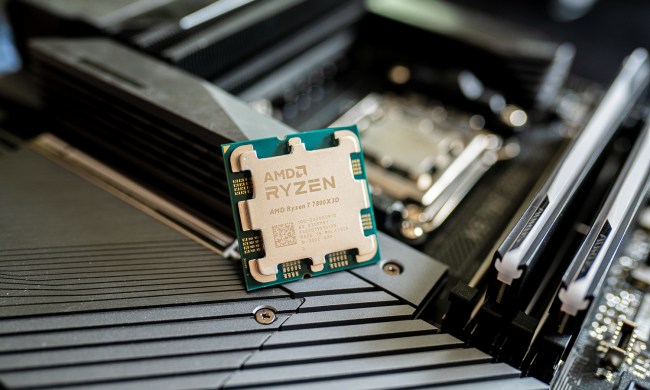AMD-powered laptops have struggled to catch on. Despite the advancements the company has made in desktop processors, its laptop selection is severely lacking.
That tide may be starting to turn, however, as with rumors swirling that we’ll see AMD APUs in the Surface Laptop 3. The new laptop is rumored to launch at Microsoft’s upcoming Oct. 2 Surface event. If true, this could pave the way for a tsunami of AMD-powered laptops in 2020, potentially sporting a new-generation of Zen 2 and Navi-powered Ryzen APUs.

The Zen architecture is at the core of AMD’s impressive CPU resurgence in recent years. From its first iteration in the first generation of Ryzen CPUs, to Zen 2 in the most recent generation of Ryzen 3000 desktop chips. But where Intel tends to lead with mobile designs when it comes to new technologies, AMD’s laptop chips lag a year behind its desktop developments.
That’s why Ryzen 3000 mobile APUs are still based on the Zen+ architecture found in its second-generation desktop chips. That’s not terrible, but it means that there’s still more greatness to come when the enhancements of Zen 2 hits mobile, potentially sometime in 2020.
But if AMD wants to make any significant sales on that front in the early days of that new, impending generation, then it’ll need to lay the groundwork first. That’s what AMD APUs in Microsoft’s Surface Laptop 3 could well do. Although we’ve seen a few AMD chips show up in laptops so far in 2019, the space is still very much dominated by Intel. A major brand like the Surface adopting AMD tech, though, could help to change that.
It’s not just about competing with Intel, though. AMD desperately needs laptop buyers to see its name alongside high-end brands like Surface to once again associate AMD with credible mobile performance. In much the same way that AMD’s recent wins in CPU and graphics have helped add AMD back into the buyer conversation about what PC hardware they should consider, getting AMD chips into popular notebook brands would help do the same for AMD on mobile.
With new, impending competition from Qualcomm in that space too, AMD will need to make a strong statement to get its head above water and stand out from the crowd of existing Intel machines and other new entries in the space.

Intel’s Jon Carvill told Digital Trends during a live-performance test during IFA 2019, that Intel considered the idea of AMD or Qualcomm threatening its mobile business to be “ridiculous.” In many ways he’s not wrong. Intel is practically the only brand to consider when it comes to high-performance laptops in the midrange and beyond. But AMD just might have the momentum to change that. While Zen 2 is likely to be the architecture that really puts its name on the map, getting a few penciled notes in the margins with Zen+ APUs in systems like the Surface Laptop 3, would be a great start.
That might seem like something that matters little for potential buyers, but AMD’s CPU efforts in the desktop space lit a fire under Intel like we haven’t seen in quite some time. Doing so in the mobile space improves competition which helps drive down prices and bolsters features and performance for everyone. That is something that’s worth celebrating, whether you’re an AMD fan or not.




